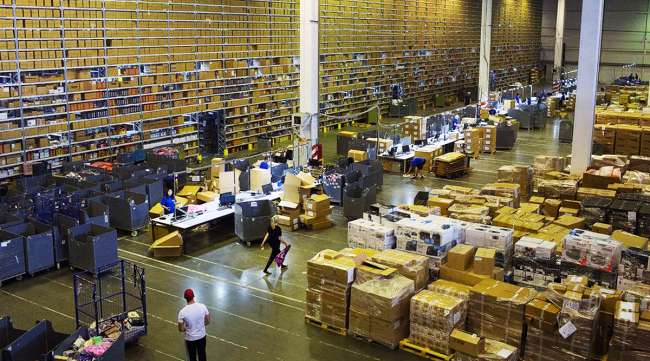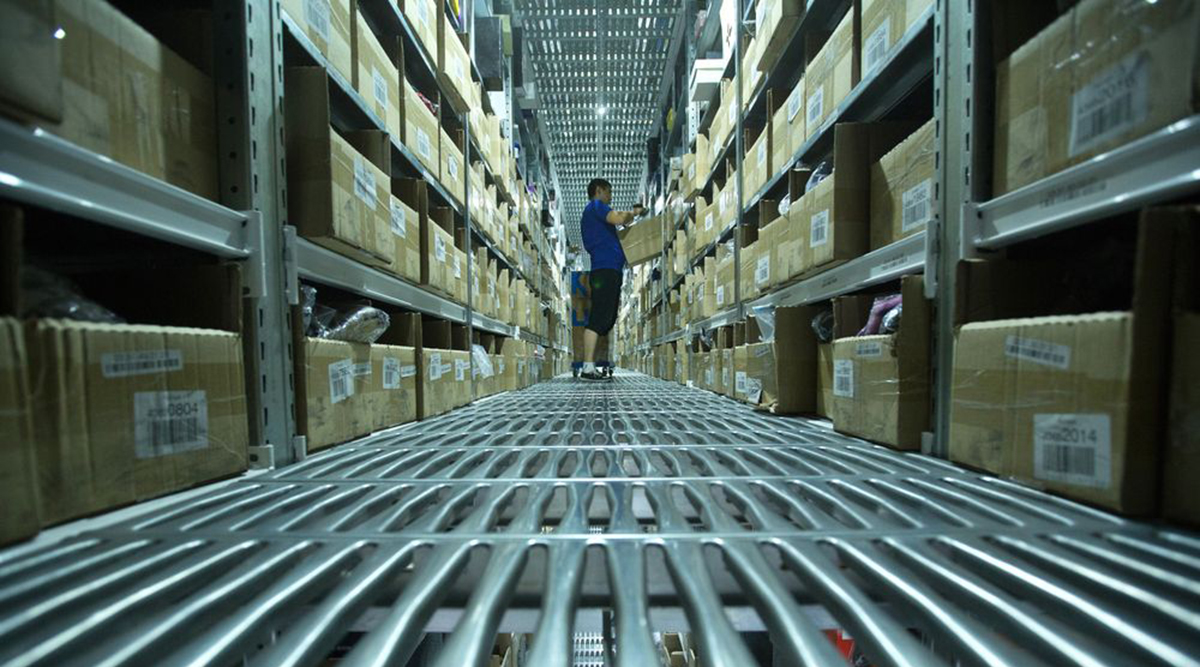With Most Efficient Logistics, Wildberries Becomes Russia’s Biggest Web Retailer

At least five companies could be considered contestants in the race to rule online retailing in Russia, and most of them are backed by banks or billionaires.
But the leading contender is run by a mother of four who founded her company in her Moscow apartment while on maternity leave from her job as an English teacher.
“At first, I did everything myself, collecting the goods and taking them to customers on the other side of Moscow by subway or bus,” said Tatyana Bakalchuk, CEO of Wildberries, which has 15,000 employees and last year booked sales of $1 billion, up 40% from 2016.

Wildberries founder Bakalchuk (Wildberries via Bloomberg News)
Bakalchuk, 42, conceived of Wildberries in 2004 as a place for people like her: moms on a budget with limited time for shopping. She ordered clothes in bulk from a German mail-order catalog, scanned the pictures, and posted them on her website. Her customers didn’t have to prepay, and she delivered to homes instead of making buyers pick up their purchases; the Russian postal service didn’t deliver parcels.
With about 7% of the $14 billion market, according to researcher Data Insight, Wildberries is the country’s largest online retailer. While two other players, Alibaba Group Holding Ltd.’s AliExpress and Yandex.Market, have larger sales, they only resell goods for others and don’t carry their own inventory. Amazon.com has stayed away from Russia because of political tensions and the logistical challenges of a country with 11 time zones.
Among Russia’s web stores, Wildberries has the most efficient logistics, as well as a loyal customer base, said Fedor Virin, a partner at Data Insight. But it is self-funded, making it vulnerable to companies with more robust financial backing such as AliExpress, which mostly sells goods imported from China; M.video, controlled by billionaire Mikhail Gutseriev; and Ozon.ru, backed by another billionaire, Vladimir Evtushenkov. With the top five companies together controlling about a quarter of the market, “There’s clearly going to be consolidation,” Virin says. “We’re going to end up with just a few large players.”
Within a year of launching Wildberries, Bakalchuk had started hiring couriers to deliver her goods. Having outgrown her apartment, she rented space in a nearby research institute to store her swelling piles of parcels and boxes, but the company’s growth proved hard to keep up with. “Each time, we moved into a new warehouse with enough empty space to play a soccer match, and we thought we’d be there for years,” Bakalchuk says. “A few months later, we needed more room.”
As income from her company eclipsed that from the small IT business run by her husband, Vladislav, he started helping more at Wildberries, where he’s listed as a co-founder. In 2006, an acquaintance named Sergei Anufriev invested, and today the three own approximately equal shares of a company valued at more than $600 million, according to the Bloomberg Billionaires Index. They have been approached by private equity firms, but the Bakalchuks have spurned the offers, saying they don’t need the money.

A Wildberries distribution center. (Andrey Rudakov/Bloomberg News)
An early threat came in 2006, when the catalog company Bakalchuk was buying from sought to enter the Russian market itself. That spurred Bakalchuk to sign deals directly with brands such as Tom Tailor, s.Oliver and Adidas. Russia’s financial crisis of 2008-09 helped as foreign companies offloaded discounted collections through Wildberries amid the ruble’s drop and weakening local demand. Since 2014, Wildberries has added beauty products, toys and household appliances such as microwave ovens and blenders.
Today, the company sells about 10,000 brands, including Asics, Geox, L’Oréal and Nike. Wildberries has “a wide audience, strong know-how, and a very good assortment and logistics network,” said Claudio Cavicchioli, the Russia chief for L’Oréal, which began working with Bakalchuk in 2015. “They’re a great business partner.”
Wildberries is making a big push into sales of mobile phones and other electronic devices, though clothes and shoes still bring in about 70% of revenue. The company handles 150,000 orders a day, operating more than 600 trucks and vans in Russia and several neighboring countries. It has established 1,700 pickup points where customers can try on clothes and return them if they don’t fit. This fall, Bakalchuk will leave her headquarters in a warehouse beyond Moscow’s beltway for new offices downtown. “Sometimes it feels like riding a high-speed train,” Bakalchuk said, “with no way of jumping off.”
With Alex Sazonov




